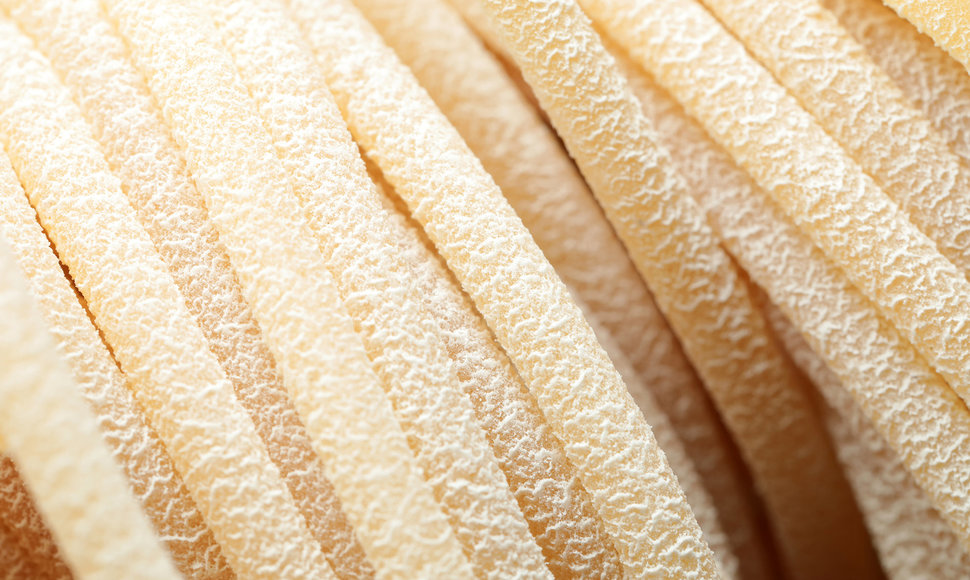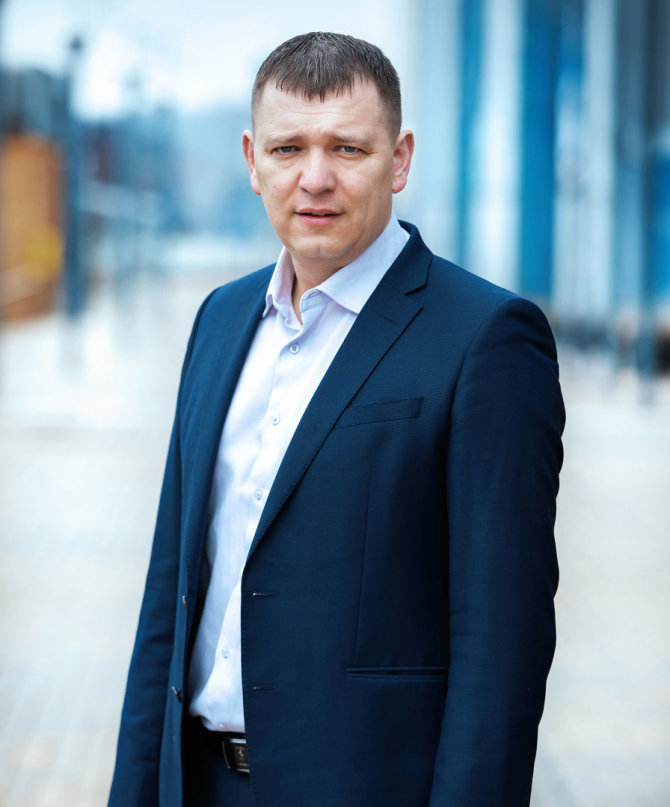“Moving into this new category of products will allow us to establish our position as the first producer of durum wheat pasta in Lithuania as there are currently no other local players in this segment of the market. We are also aiming to become a serious competitor to the Italian producers who are presently taking up the majority of the market share of durum pasta. This type of pasta makes up around 40 per cent of the total market of pasta products in Lithuania. We are hoping to gain about 20 per cent of that within a year,” says Marius Dužinas, head of Malsena.
In addition to using durum wheat for producing their high-quality pasta, Malsena also uses bronze dies in order to be able to compete with the Italian producers. This top-level technology of pasta production is used only by a relatively small number of pasta producers globally, and has been effectively implemented by Malsena thanks to close collaboration amongst experts from Switzerland, Italy and Lithuania. The bronze dies now used by Malsena have been designed and implemented by the representatives of the Italian manufacturer Niccolai Trafile, which is the world leader in Italian pasta technologies.
“The first production run of the bronze-cut pasta took a huge amount of experimenting, testing and consulting. The first six bronze dies (ital. ‘trafila’) required the investment of 30K euros. But the highest costs came from having to adapt these dies, finding the right recipes and adapting the technology itself, which is completely new to the Lithuanian market,” explains Mr Dužinas.
According to Dužinas, most of the industrial pasta production companies use the Teflon-coated steel pasta dies resulting in pasta with a smooth, shiny surface. Bronze dies, on the other hand, are used for producing pasta in an old-traditional way, which is more expensive and takes more time.
“To compare the two methods, 30 per cent less pasta is produced during the same time when using the bronze dies: the pasta-shaping machine is not rotating as fast, the drying compartments are less pressured and the technological routines are more important. In addition, bronze dies are more expensive, the production process itself requires closer observation and staff involvement. But the end result – ‘rough’ pasta the surface of which has been scratched to allow for better sauce absorption – is often seen as the mark of the highest quality,” says the head of Malsena.
Ambitious plans
Malsena hopes that the new product line will firmly position itself on the shelves of all of the biggest supermarket chains in Lithuania before autumn, and will successfully compete with Italian pasta producers.
“By entering the category of premium pasta, we aim to reach customers who will appreciate the added value of bronze-cut technology and durum wheat used in our products, such as the various health and nutritional benefits as well as their quality and taste,” says Mr Dužinas.
Malsena has a stronger presence in Lithuania as a producer of flour, flour-mixes, flakes and instant porridges, and is part of Baltic Mill which also owns Amber Pasta, a long-standing pasta producer in Lithuania. Combining the strengths of the two companies, the experience in pasta production and brand awareness around Malsena allowed for moving into the segment of premium pasta products.
“We have been following the growth of durum wheat pasta consumption globally for a while now. The demand for products with longer shelf life will increase further due to the coronavirus pandemic, and we also see that today’s consumer values the Lithuanian aspect of the products they are purchasing. These products are seen as fresher, tastier, and more sustainable. This is particularly important in the context of COVID-19 whereby consumers choose a producer which is not only reliable but also local. We hope that the premium brand of the Lithuanian durum wheat pasta will be favoured by our customers too,” says Mr Dužinas.
According to him, the immediate plans of the company are centred around strengthening their position in the local market of durum wheat pasta with the potential exporting opportunities to the Western European and Scandinavian markets in the future.
About Malsena Plius and Baltic Mill
Malsena Plius is one of the largest and most innovative grain processing companies in Lithuania. It is part of AB Baltic Mill which also owns the Latvian Rigas Dzirnavnieks, the Estonian Balti Veski and the Lithuanian firms Amber Pasta, GT Innovation and Malūno virtuvė.
The milling experience which Malsena Plius has accumulated over several decades coupled with modern technologies enables the production of a wide variety of products such as wheat and rye flour as well as flour mixes, semolina, bran and wheat germ.
The sales revenue of Malsena Plius in 2019 reached 26.1 million EUR and the company currently has over one hundred employees.













